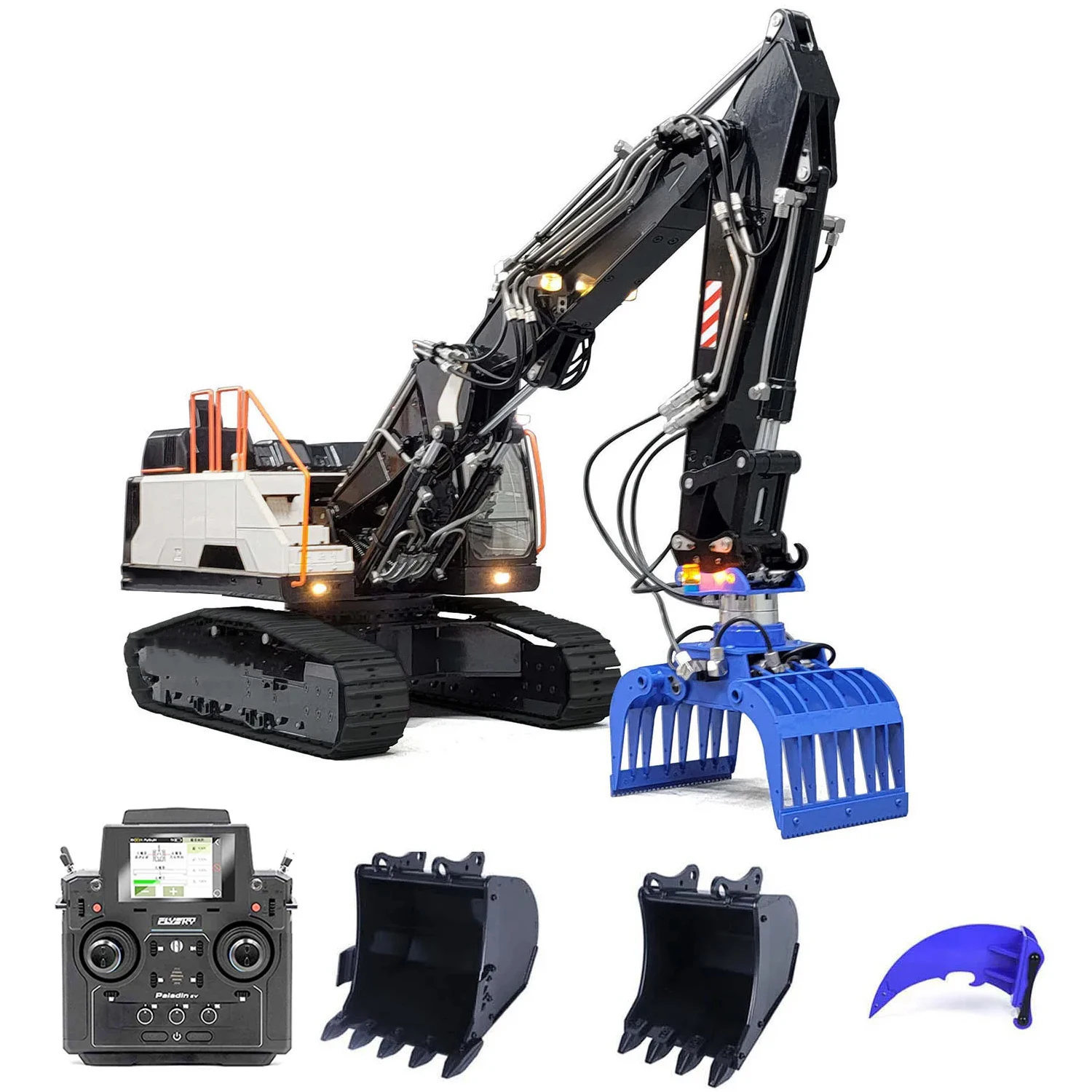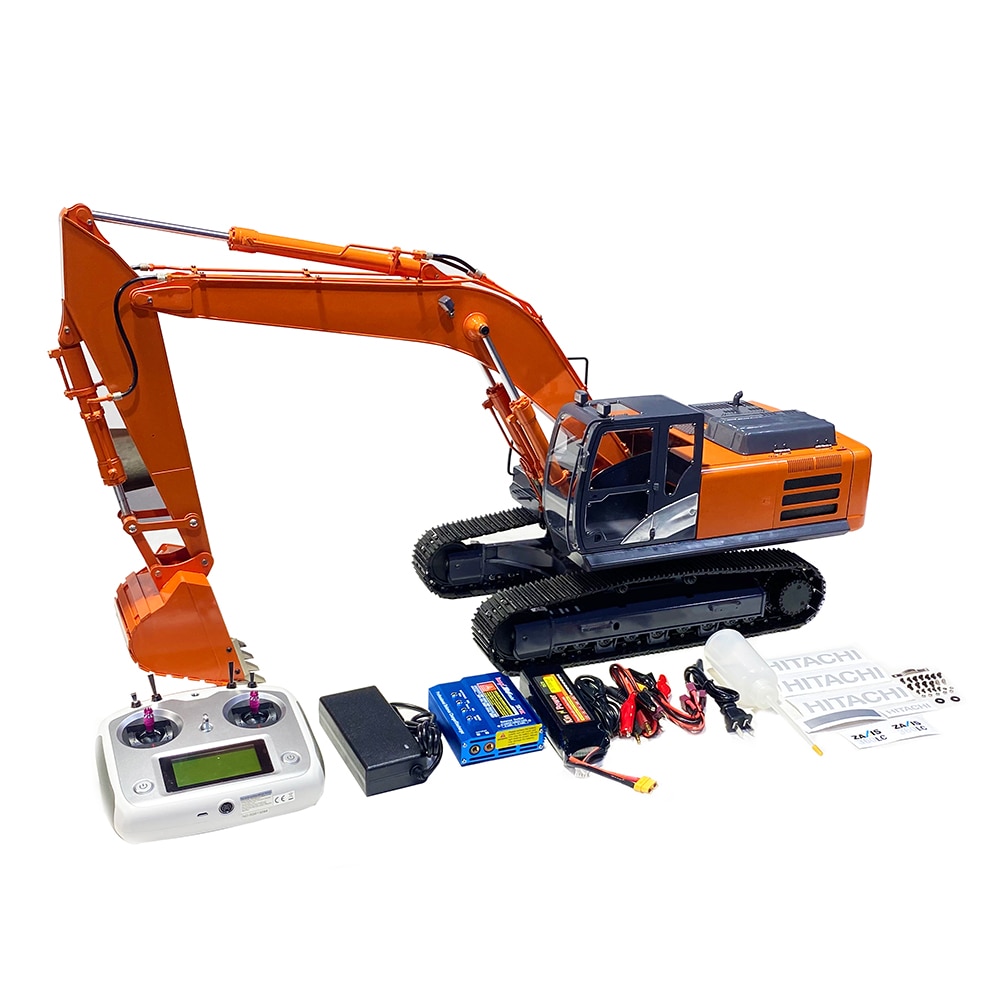Comprehending Just How Excavator Functions and Its Influence On Efficiency
Excavators play an essential function in building and construction and mining procedures, depending on a complicated interaction of hydraulic and mechanical systems. Their capability to carry out a range of tasks hinges on both their style and the technology incorporated within. Recognizing these elements can substantially influence operational effectiveness and performance. As advancements proceed to reshape the industry, one need to take into consideration exactly how these adjustments will certainly affect future practices and efficiency.
The Basics of Excavator Mechanics

The Function of Hydraulic Solutions in Excavators
At the heart of excavator procedure lies the hydraulic system, which plays a pivotal function in powering the maker's motions and functions. This system makes use of pressurized hydraulic fluid to move power, enabling numerous actions such as lifting, digging, and moving. By harnessing the principles of hydraulics, excavators can carry out tasks with exceptional accuracy and pressure, enhancing general operational efficiency.The hydraulic system contains crucial elements, including pumps, shutoffs, and cylinders, which collaborate to regulate the circulation and instructions of the liquid. When the operator engages the controls, the hydraulic liquid is routed to specific cylinders, translating the driver's commands into physical movement. This mechanism permits smooth and responsive activities, which are necessary in building and excavation atmospheres. double e volvo rc excavator. The effectiveness of the hydraulic system directly affects the performance and convenience of the excavator, making it an indispensable aspect in modern excavation procedures
Key Components of an Excavator
Recognizing the essential parts of an excavator is necessary for grasping how this effective machine operates. An excavator is composed of numerous substantial elements, including the undercarriage, house, arm, boom, and bucket. The undercarriage supplies security and flexibility, often including tracks or wheels to browse numerous surfaces. Your house has the engine and hydraulic systems, enabling the operator to manage motion and power the machine. The boom expands from your home, allowing upright reach, while the arm connects to the container, facilitating digging and lifting operations.Additionally, the cab houses the operator, geared up with controls for accurate maneuvering. Each of these elements plays a vital role in the excavator's general performance, adding to its efficiency and performance on construction websites. Comprehending these parts assists in preserving and optimizing excavator performance, ensuring tasks are finished safely and properly.
Attachment Flexibility and Its Advantages
Add-on adaptability is a necessary facet of excavators, allowing operators to switch between various tools customized for details tasks. This adaptability not only enhances job efficiency but also adds to cost-effectiveness by lowering the need for several makers. Understanding the various kinds of accessories readily available can significantly impact the total performance and functionality of an excavator on job websites.
Sorts of Add-ons
While excavators are largely recognized for their excavating abilities, their true convenience depends on the broad range of add-ons readily available. These accessories improve the excavator's performance, enabling it to do numerous jobs beyond excavation. Usual accessories include pails (for excavating and scooping), hydraulic thumbs (for realizing materials), and augers (for piercing openings) Grapples are utilized for moving and handling particles, while rippers can separate difficult surface areas. Other specialized accessories, such as trenchers and plows, make it possible for excavators to adapt to particular job needs. This variety not only raises the equipment's utility across various industries, consisting of landscaping, building, and demolition, but additionally permits operators to customize their equipment to meet specific project demands efficiently.
Increased Task Performance
Making best use of work performance is a primary benefit of utilizing various excavator attachments. Various add-ons enable an excavator to execute numerous jobs without requiring to switch tools, saving beneficial time and labor. For example, making use of a hydraulic hammer can damage concrete while a bucket attachment can excavate dirt, allowing a smooth operations. This versatility minimizes downtime connected with tools changes and improves productivity on-site. Additionally, specialized add-ons enhance accuracy in jobs such as grading or landscape design, resulting in better results. The capacity to adjust to various work needs not just improves operations yet likewise decreases the requirement for extra machinery, making sure that tasks are completed swiftly and properly. Generally, accessory adaptability significantly adds to boosted task effectiveness in excavation job.
Cost-Effectiveness and Flexibility
Cost-effectiveness is a substantial benefit of using versatile excavator add-ons. These accessories allow a solitary excavator to do several jobs, link minimizing the need for additional machinery and labor - double e volvo rc excavator. By changing between buckets, hammers, and grapples, operators can tackle different tasks, from excavating to demolition, therefore making the most of devices application. This versatility not only lowers operational expenses yet additionally minimizes downtime connected with altering equipment. Additionally, the capacity to customize excavators with specialized add-ons improves performance, as they can successfully take care of varied jobs according to task demands. In conclusion, the combination of cost-effectiveness and versatility in excavator accessories adds to improved operational performance and source allowance in construction and excavation tasks

Advanced Technology in Modern Excavators
Modern excavators are increasingly furnished with sophisticated technology that transforms excavation processes. Automation enhances operations, while enhanced gas performance decreases operational prices. Additionally, wise control systems improve precision and security, noting a substantial evolution in excavation tools.
Automation in Excavation Processes
As excavation innovation develops, automation has arised as an important part in improving effectiveness and precision on task sites. Modern excavators are geared up with advanced automated systems that facilitate tasks such as grading, excavating, and trenching with very little operator treatment. These systems make use of sensors, GPS, and artificial intelligence algorithms to guarantee accurate placing and deepness control, substantially minimizing the margin for error. Additionally, automation allows operators to concentrate on tactical decision-making instead of manual controls, leading to enhanced performance on the whole. Such technologies not just enhance process however also enhance security by minimizing human error in complex procedures. The integration of automation in excavation processes stands for a significant improvement in construction technology, driving the sector in the direction of higher effectiveness and efficiency.
Boosted Fuel Efficiency
Developments in innovation have also caused significant enhancements in gas performance for contemporary excavators. Modern equipments are equipped with innovative engines that maximize power outcome while lowering fuel usage. These engines make use of innovative combustion technologies, such as turbocharging and direct gas shot, to improve performance and performance. Furthermore, lightweight products in construction lower overall weight, permitting much less energy expenditure throughout procedure. The introduction of variable speed controls makes it possible for drivers to change engine efficiency according to particular tasks, further decreasing gas use. Consequently, these improvements not only lower operational prices yet also add to ecological sustainability by reducing exhausts. Generally, enhanced fuel effectiveness in excavators is a vital growth that strengthens efficiency and financial stability in the building industry.
Smart Control Equipment
While operators browse progressively complex work sites, wise control systems in excavators have actually arised as essential tools for boosting performance and precision. These sophisticated modern technologies use sensors and formulas to monitor different parameters such as tons weight, terrain problems, and functional performance. By instantly changing hydraulic features, wise systems maximize maker efficiency, causing improved productivity and decreased wear on components. Additionally, drivers benefit from user-friendly user interfaces that provide real-time responses and diagnostics, allowing for informed decision-making. This assimilation of technology not just simplifies operations yet also lessens human error, adding to much safer workplace. As the building market proceeds to evolve, clever control systems will play an essential function fit the future of excavator efficiency and performance.
Enhancing Functional Performance With Excavators
Excavators play an essential duty in improving operational efficiency throughout different construction and excavation jobs. Their adaptability enables several tasks, consisting of lifting, product, and digging handling, which enhances workflows and decreases the requirement for added tools. With effective hydraulic systems, excavators can execute durable tasks with precision, substantially lowering the time called for to complete jobs. The assimilation of sophisticated innovation, such as GPS and automated controls, additionally maximizes their operation, making it possible for operators to accomplish better accuracy and minimize product waste. In addition, contemporary excavators are developed to consume much less gas and lessen discharges, adding to both expense savings and environmental sustainability. By making use of excavators effectively, construction groups can boost efficiency, meet job deadlines, and improve total website monitoring. This multifunctionality and performance make excavators important tools in the modern-day building and construction landscape.
The Future of Excavators in Building and Mining Industries
As the construction and mining industries evolve, the future of excavators is poised for considerable makeover driven by technical development and altering functional demands. Developments in automation and expert system are reshaping excavator abilities, permitting improved precision and effectiveness in operations. Independent excavators are arising, decreasing the need for human intervention and reducing the risk of accidents.Moreover, the assimilation of telematics and IoT innovation allows real-time monitoring of maker efficiency and predictive maintenance, enhancing uptime. Environmentally friendly layouts, including hybrid and electric models, are getting grip, straightening with sustainability goals within the industry.Additionally, making use of innovative materials and lighter styles improves fuel effectiveness while preserving efficiency standards. As these patterns progression, excavators will play an important role in fulfilling the raising demands for efficiency and safety and security in construction and mining, ultimately transforming functional landscapes.
Regularly Asked Concerns
How Do Climate Problems Affect Excavator Performance?

Weather significantly affect excavator performance, as rainfall and mud can hinder go to this site grip and security, while extreme temperature levels may influence hydraulic systems. Operators must adapt to these variables to guarantee suitable performance and safety and security throughout procedures.
What Security Steps Should Operators Follow While Utilizing Excavators?
Security measures for excavator operators include wearing suitable personal protective tools, performing pre-operation assessments, making sure proper communication with ground workers, preserving a secure range from overhead risks, and adhering to well established operational methods to stop mishaps.
Just How Commonly Should Excavators Be Kept for Ideal Efficiency?
Excavators need to be preserved routinely to assure peak efficiency, commonly every 250 operating hours or as specified by the supplier. Regular checks boost dependability, protect against unforeseen failures, and extend the life expectancy of the tools.
What Is the Ordinary Life Expectancy of an Excavator?
The typical life expectancy of an excavator generally ranges from 10,000 to 15,000 hours of operation. Aspects affecting longevity consist of upkeep practices, running conditions, and the top quality of the device itself, impacting overall performance and effectiveness.

Can Excavators Operate Uneven Terrain Efficiently?
Excavators can operate efficiently on irregular surface as a result of their articulated designs and flexible tracks. These attributes allow them Learn More Here to keep stability and traction, allowing efficient operation in difficult settings commonly encountered in building and landscape design tasks. Each of these elements plays an essential duty in the excavator's overall capability, contributing to its performance and efficiency on construction sites. Taking full advantage of task efficiency is a primary benefit of using numerous excavator add-ons. While drivers navigate significantly complex work sites, wise control systems in excavators have actually emerged as vital devices for enhancing effectiveness and accuracy. Excavators play an important duty in improving operational performance across different building and construction and excavation projects. Breakthroughs in automation and man-made intelligence are improving excavator capabilities, permitting for improved precision and performance in procedures.